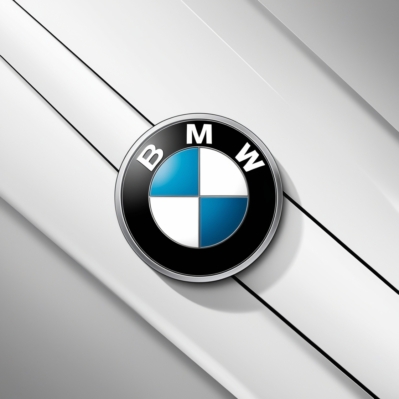Renee Lotenero, et al. vs. BMW of North America, LLC, a Delaware limited liability company
Case Background
On April 12, 2022, Plaintiffs Renee Lotenero and Steve Siegrist filed a warranty breach lawsuit against Defendant BMW of North America, LLC, alleging a violation of the Song-Beverly Act. The case was filed in the California Superior Court, Los Angeles County. Judge Theresa M. Traber presided over this case. [Case number: 22STCV12388]
Cause
Plaintiffs Renee Lotenero and Steve Siegrist lived in Los Angeles, California. The Defendant, BMW, was a Delaware Limited Liability Company that registered to operate in California. Its registered office was also located in Los Angeles.
The Plaintiffs’ claims stemmed from BMW’s warranty obligations related to a motor vehicle. On February 22, 2020, they signed a warranty contract with BMW for a 2017 BMW i3, VIN: WBY1Z8C30HV895047, referred to as “the Subject Vehicle.” The specific terms of the express warranty appeared in Exhibit 1.
During the warranty period, the Plaintiffs noticed defects and nonconformities, particularly electrical issues. These problems significantly affected the vehicle’s use, value, and safety. To address these issues, the plaintiffs brought the Subject Vehicle to an authorized BMW repair facility.
Despite several attempts to repair the vehicle, BMW could not resolve the nonconformities and meet the express warranty’s requirements.
Damages
The Plaintiffs were entitled to all incidental, consequential, and general damages due to the Defendant’s failure to meet its obligations under the Song-Beverly Act. They could recover a sum that covered the total costs and expenses, including attorney’s fees, incurred in starting and pursuing this action.
Additionally, the Plaintiffs were entitled to a civil penalty of up to twice the actual damages. This penalty arose from BMW’s willful failure to fulfill its responsibilities under the Act. They also had the right to receive either a replacement or reimbursement in accordance with Civil Code section 1794 and related sections.
Furthermore, the Plaintiffs were entitled to rescind the contract based on Civil Code section 1794 and Commercial Code section 2711. They had the right to recover any “cover” damages as outlined in Commercial Code sections 2711 and 2712, as well as Civil Code section 1794 and related provisions.
Lastly, the Plaintiffs sought to recover all incidental and consequential damages according to Civil Code section 1794 and Commercial Code sections 2711, 2712, and 2713.
Key Arguments and Proceedings
Legal Representation
- Plaintiff(s): Renee Lotenero and Steve Siegrist
- Counsel for Plaintiff(s): Roger Kirnos | Maite C. Colon
- Defendant(s): BMW of North America, LLC, a Delaware limited liability company
- Counsel for Defendant(s): Jennifer C. Arnold | Kyle A. Fellenz
Claims
First Cause of Action
Violation of the Song-Beverly Act – Breach of Express Warranty
Under the Song-Beverly Act, Defendant had a clear duty to promptly offer to repurchase or replace the Subject Vehicle. This obligation arose when the vehicle failed to meet the express warranty after a reasonable number of repair attempts.
However, BMW failed to replace the Subject Vehicle or provide restitution as required by the Song-Beverly Act. As a result of this failure, Defendant violated the Act by not conforming the Subject Vehicle to the express warranty.
Second Cause of Action
Violation of the Song-Beverly Act – Breach of Implied Warranty
BMW and its authorized dealership knew the intended use of the Subject Vehicle at the time of sale. The sale included an implied warranty of fitness. Additionally, the sale carried an implied warranty that the vehicle was merchantable, according to Civil Code section 1792.
The Plaintiffs received the Subject Vehicle with latent defects, including electrical issues. Consequently, the vehicle was unfit for its ordinary purpose. It also failed to meet the promises or descriptions stated on its label or container.
Moreover, the Subject Vehicle did not match the quality generally accepted in the industry. The Plaintiffs justifiably revoked acceptance of the vehicle under Civil Code section 1794 before filing this Complaint, during a conversation with BMW’s customer service.
Thus, the Plaintiffs formally revoked acceptance of the Subject Vehicle.
Defense
The Defendant denied the allegations made against them. In their response, they stated that they were informed and believed the following. Defendant alleged that any damages suffered by the Plaintiffs resulted directly and closely from the actions of the Plaintiffs and their agents, employees, and invitees. Specifically, Defendant claimed that these parties negligently, carelessly, recklessly, knowingly, and willfully operated, maintained, serviced, directed, and controlled all aspects of the vehicle’s operations and maintenance.
Jury Verdict
On July 3, 2024, the jury returned a verdict in favor of the Plaintiffs. The jury determined that the vehicle had defects covered by the warranty, which significantly impaired its use, value, or safety for a reasonable buyer in the Plaintiffs’ situation. The Defendant or its authorized repair facility failed to repair the vehicle after having a reasonable number of chances to do so. Additionally, the Defendant did not promptly replace or repurchase the vehicle.
Court Documents:
Available upon request







Leave A Comment